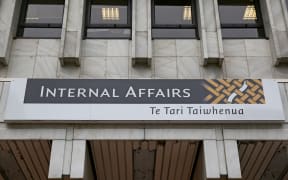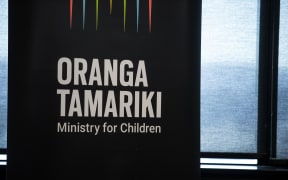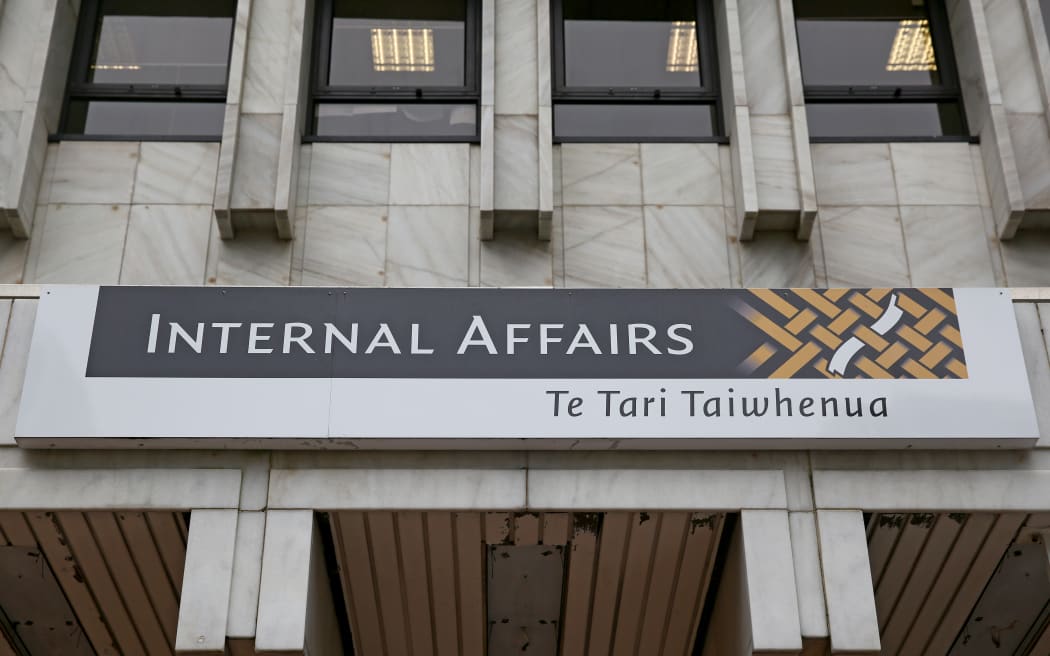
The Department of Internal Affairs refuses to say how much the project's failure has cost taxpayers (file image). Photo: RNZ / Alexander Robertson
A core government department has pulled the plug on a multi-million-dollar project meant to give people far faster and more secure access to their identity data online - triggering a dispute with the vendor.
The Department of Internal Affairs (DIA) told RNZ it has "terminated its contract with its Civil Registration system replacement IT vendor".
It is now in a fight with the vendor - even as it tries to impose much tougher IT spending controls on other agencies.
It had decided to "stop work on the development of the replacement Civil Registration system at this point in time", it said in a statement on Wednesday when RNZ asked about this.
The project had aimed to replace old unreliable tech with cloud services to enable people to access and use their birth, death and marriage registrations online, easily.
It was central to the $150 million second phase of the $300m Te Ara Manaaki project.
DIA refuses to say how much the project's failure has cost taxpayers.
"The department cannot discuss further details of our confidential discussions with the vendor or other matters relating to this programme of work while discussions are ongoing," Maria Robertson, deputy chief executive of service delivery and operations, said.
Last month, Robertson told MPs in a select committee the project was going ahead.
"We're moving on to civil registry as well, which will enable constantly up to date, not sitting on 25-year-old infrastructure, allowing citizens to do much more with their own information and data, and also to be able to send that ... to other organisations that rely on it," she said, having outlined how passports and citizenship data was also being shifted in March to the new cloud-computing platforms.
She did not tell MPs the civil registry part was in trouble or being abandoned - even though RNZ revealed in December the project was so far off track that DIA had hit pause while it had talks with the vendor.
Robertson's boss Paul James has just launched an initiative to force government agencies to make big cuts to $12 billion of IT spending forecast over the next few years.
James repeatedly told the same committee that public sector chief executives had to remain accountable for delivering data projects.
The Civil Registration project vendor DWS Group told RNZ: "The parties are in dispute about the reasons why work has stopped."
It had ceased work "following the department's decision to stop work on the development of the replacement system".
"We are currently in discussions with the department to try and reach an agreement regarding the dispute."
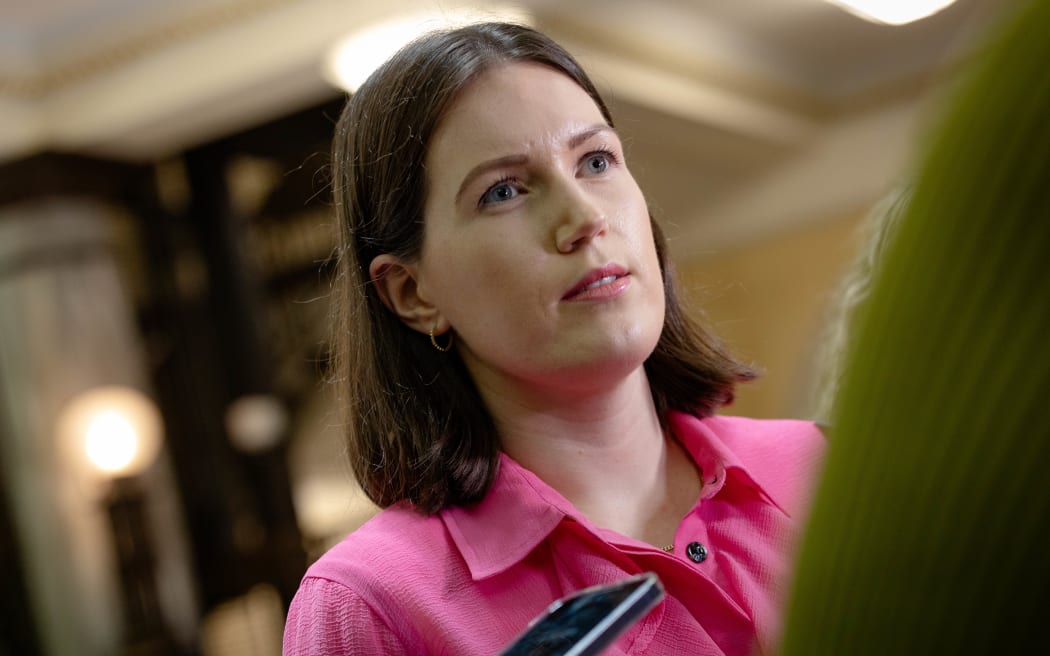
Minister of Internal Affairs Brooke van Velden says there are lessons to be learnt from this situation. Photo: RNZ / Angus Dreaver
Overall responsibility for Te Ara Manaaki spending sits with ACT Party Minister of Internal Affairs Brooke van Velden.
RNZ asked her how much money had been spent on the project, and who would be held accountable.
Van Velden said this was an ongoing commercial matter so it was not appropriate to provide more information on it.
"What I can say is that this government is not a fan of the sunk cost fallacy - while it is always disappointing to hear of public funds spent on initiatives that do not eventuate, it is not a reason to keep channelling money into problematic projects," she said in a statement.
"There are clearly lessons to be learnt here that I expect will be applied to any future programmes."
Te Ara Manaaki had already delivered "significant benefits" including the ability to apply for birth certificates, first passports, and marriages online, Civil Registration was only one component of the wider programme, van Velden said.
The coalition government has a policy to pay chief and deputy chief executives according to outcomes, to encourage high performance and accountability, an official document says.
Minister for Digitising Government Judith Collins pushed RNZ's request for comment to van Velden, though Collins was the minister who fronted the select committee last month to say how important the push for better digital services was.
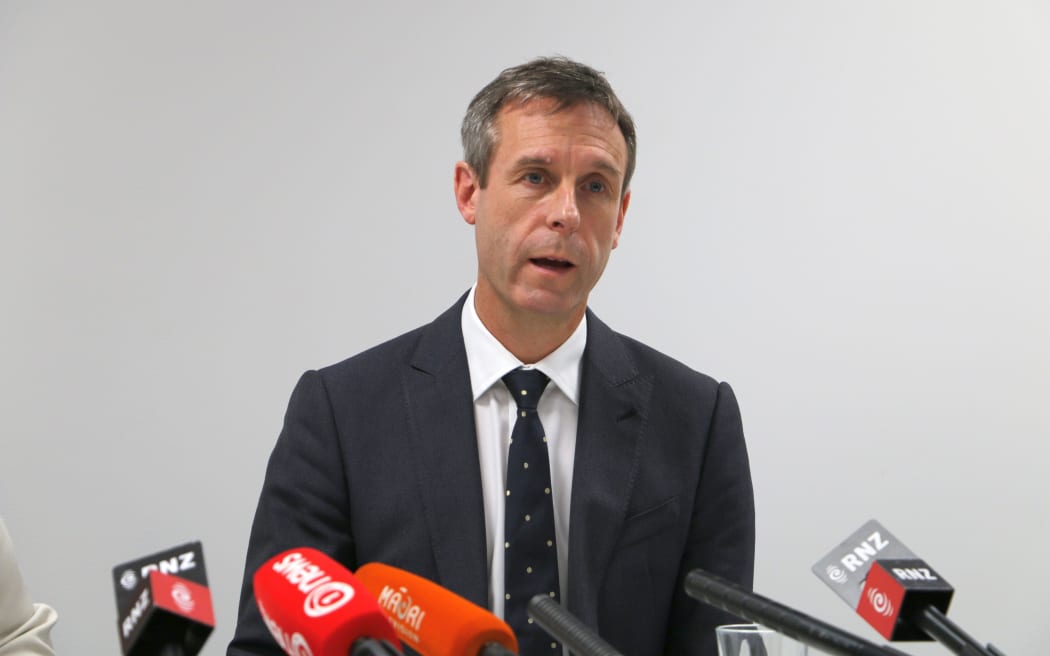
Government Chief Digital Officer Paul James. Photo: RNZ / Charlotte Cook
This comes at the same time James is fronting a new initiative to force IT cost savings on core public agencies, by forcing many to buy standardised services, instead of reconfiguring tech to suit themselves.
"We expect that will save tens of millions of dollars in the short to medium term and much more over the longer term," the select committee heard from James, who is the government chief digital officer (GCDO), who sets standards and rules about IT projects.
To start with, the new rules to adopt much more standardisation will be imposed on 23 agencies, which had told the GCDO they planned to spend $160m on finance IT in the next five to six years.
"What we're really mindful of is not inadvertently undermining the accountability structures in the public sector. So individual departments and chief executives are accountable for the services they provide currently ... we can't have the digital people coming in and making choices for those agencies."
RNZ has asked James if he is accountable for failure of the civil registry project.
Earlier this week, RNZ revealed a vital IT project at Oranga Tamariki (OT) was in such trouble it had to be restarted four months ago. OT is refusing to say what this has cost, or who vendor is or what tech platform it is on: "Costs associated with this programme of work including vendor and technology platform selection after the reset are commercially sensitive," it said on Wednesday.

